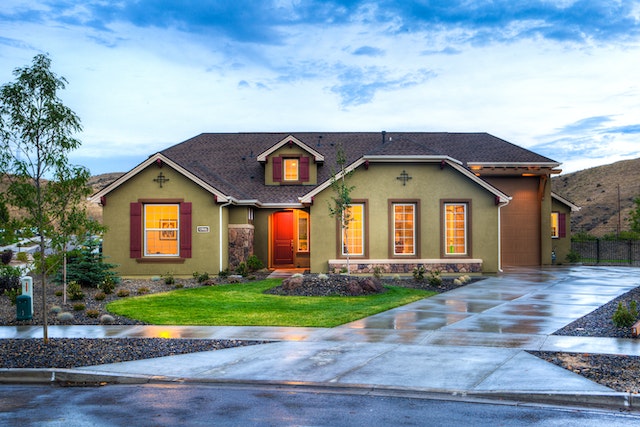
Purchasing a fixer-upper can be a wonderful experience, but it’s critical to understand the benefits and drawbacks before embarking on such a project. A fixer-upper can provide substantial financial rewards as well as the ability to customize your living space, but it also comes with its own set of obstacles and possible pitfalls.
In this blog post, we’ll go over the benefits and drawbacks of buying a fixer-upper to help you decide if this sort of property is perfect for you.
What is a Fixer-upper?
A fixer-upper is a home that needs extensive repairs, renovations, or remodeling before it can be considered move-in ready. Because of poor condition, these houses are sometimes priced lower than comparable residences in the region, making them appealing to buyers willing to put time, money, and effort into rehabilitating the property. Fixer-uppers are available in a variety of real estate types, including single-family homes, townhouses, and condominiums. Buying a fixer-upper allows you to customize your living space and perhaps raise the property’s worth through modifications, but it also comes with drawbacks such as hidden costs, financing concerns, and time-consuming restoration.
Advantages of Buying a Fixer-upper
Townhomes, also known as townhouses or row houses, are multi-level homes connected to other similar properties in a row or block. They offer a blend of features found in both single-family homes and condominiums.
Lower Purchase Price
Because they require remodeling and repairs, fixer-uppers often have a price that is significantly lower than that of move-in-ready homes. This more affordable price range allows purchasers to potentially save money on the original purchase while also gaining a larger or more desirable house for the same amount of money.
Opportunity for Customization
Fixer-uppers offer a one-of-a-kind opportunity to customize your living space from the ground up, which can be a very attractive feature. You have complete say over every aspect, from the floor plan and design to the finishes and fixtures, enabling you to craft an abode that is an accurate representation of your taste and inclinations.
Potential for Increased Property Value
Fixer-uppers have the potential to greatly rise in value through appropriate modifications and renovations, which will result in a substantial return on investment when the time comes to sell the property. Due to the fact that it has the potential to increase in value over time, purchasing a property that needs some work can be a fantastic long-term investment option.
Less Competition from Other Buyers
If you’re interested in purchasing a home that needs some work, though, you might find that there is less competition among purchasers. Because there will be less competition, the process of purchasing the property will likely go more smoothly, and you will probably pay less for it.
Opportunity to Build Sweat Equity
You can raise the value of your home and build equity in it by performing some or all of the necessary renovations on your own without incurring as much additional financial strain. You will have the opportunity to play an active role in the growth of your investment by utilizing this hands-on approach.
Disadvantages of Buying a Fixer-upper:
Hidden Fees and Unexpected Events
When renovating a fixer-upper, you might find problems you weren’t expecting, such as structural damage, mold, or electrical systems that are obsolete. Because of the potential for these unforeseen problems to result in additional costs and throw off your renovation budget, it is essential to be prepared for any potential surprises that may arise.
Time-Consuming Process
Depending on the scale of the project and any unexpected obstacles that may arise, the refurbishment process could take several months or even many years to complete. Living in an area that is undergoing construction can be difficult and annoying, therefore residents will need to exercise patience and flexibility during the duration of the project.
Financing Challenges
It’s possible that some lenders won’t finance a fixer-upper, or that you’ll need to secure additional loans, like a construction loan or a loan for home improvements, to pay for the renovations. Because of this additional complexity, obtaining financing may be a more difficult and time-consuming process.
Overestimating Your Abilities
It’s essential to be realistic about your skills, available time, and the complexity of the work involved in a fixer-upper project. Taking on too much or attempting projects beyond your skill level can lead to frustration, delays, and potentially costly mistakes.
Risk of Overcapitalization
Overcapitalization is the situation in which the cost of making renovations to a property is more than the property’s prospective value when it is put up for sale. This can occur if an excessive amount of money is invested in a property that needs modifications. It may be challenging to receive a return on your investment when it comes time to sell because of this circumstance; therefore, it is essential to keep a careful check on both your budget and the trends in the local market.
Buying a fixer-upper can be a rewarding and profitable venture, but it’s essential to weigh the advantages and disadvantages before making a decision. Consider your financial situation, time commitment, and renovation skills before embarking on a fixer-upper project. By thoroughly assessing the potential challenges and benefits, you can make an informed decision about whether a fixer-upper is a right choice for you.
If you need help finding the perfect fixer-upper or have questions about the buying process, our team at William Grayson Realty is here to help.